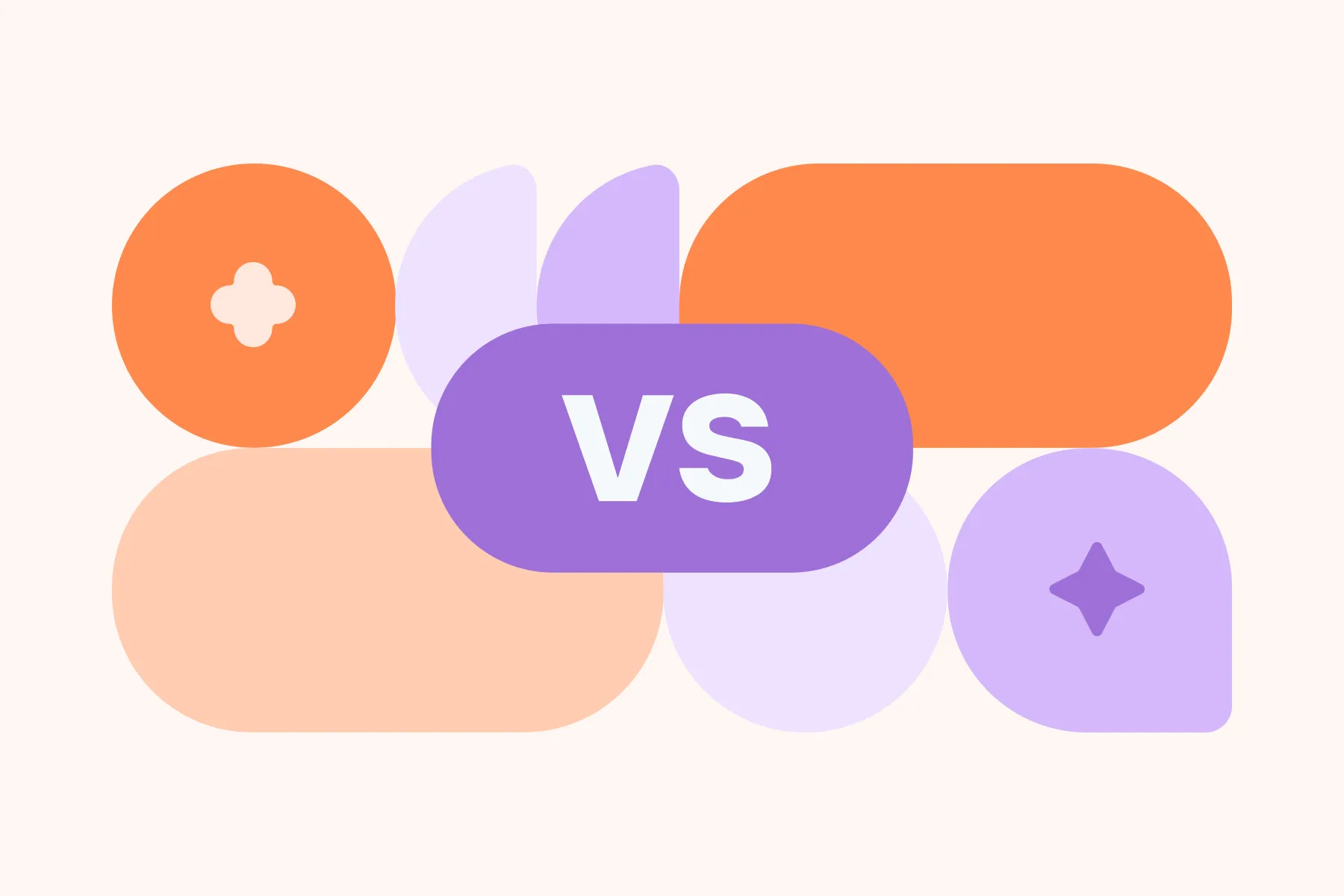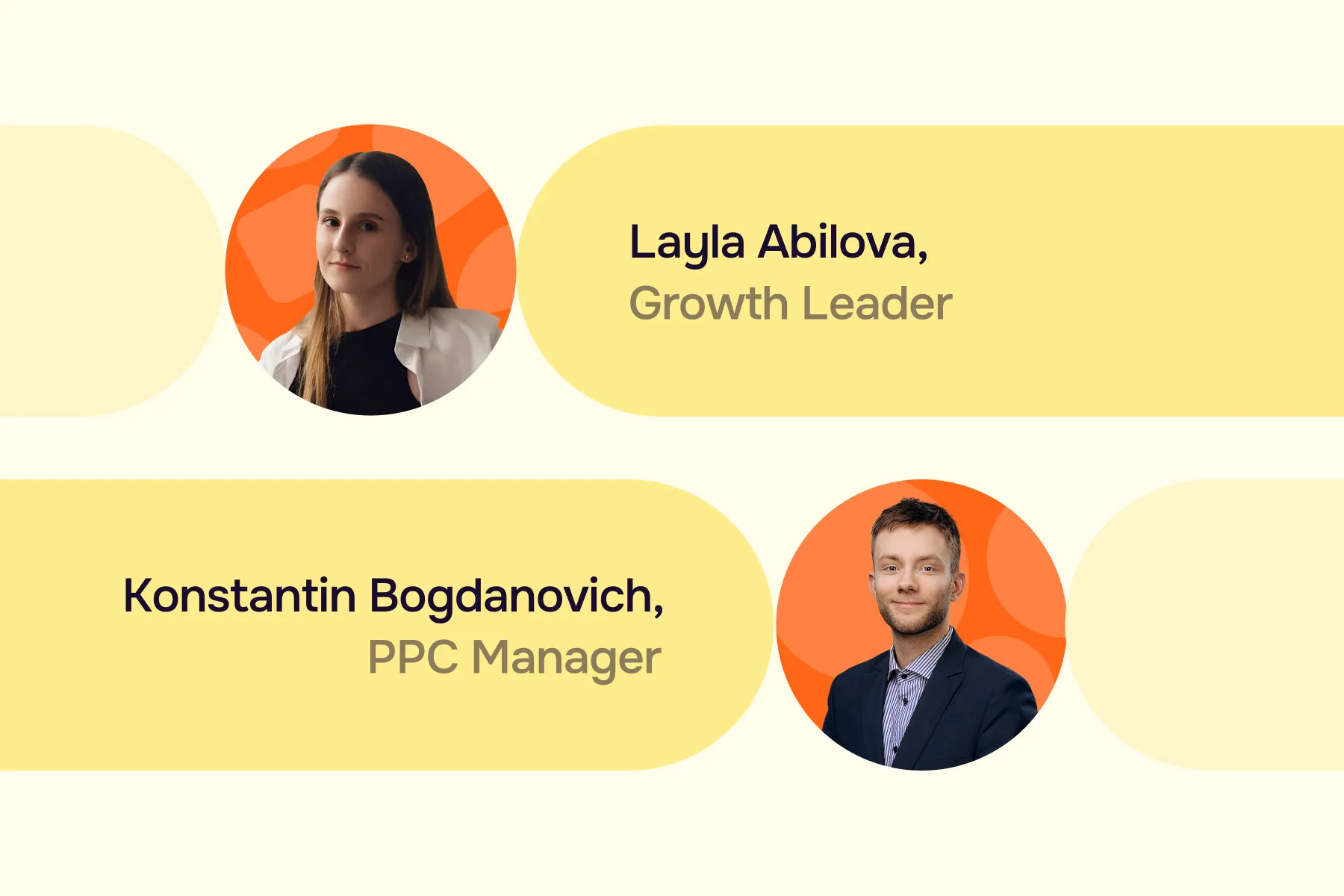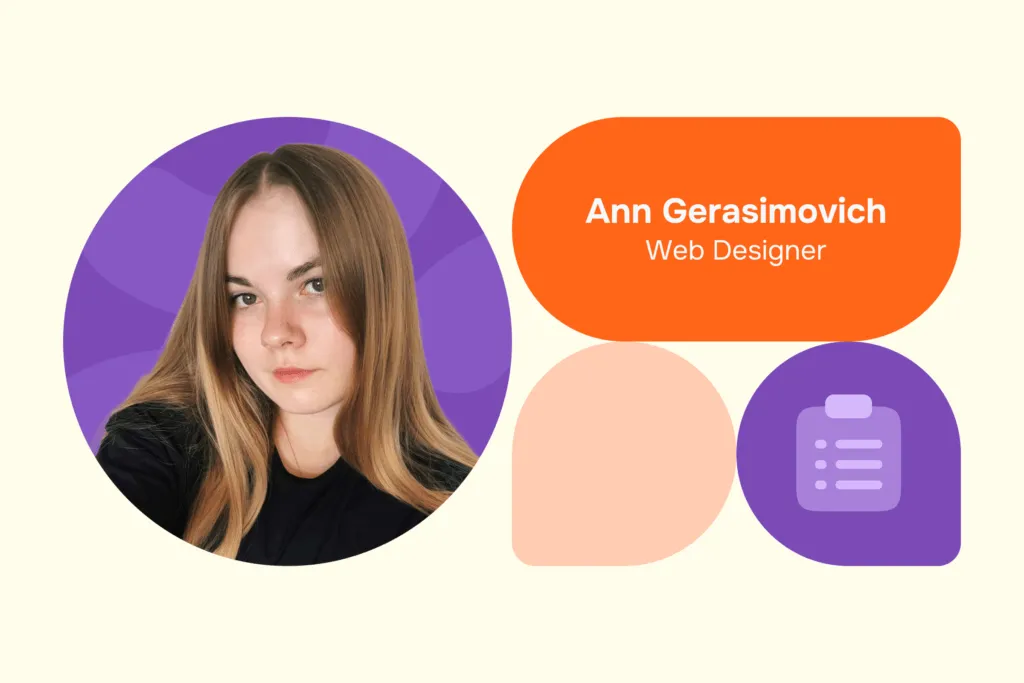SEO vs PPC for SaaS 2026: What Works Now
Anastasiya Khvin
January 21, 2026

If you're still asking "should I do SEO or PPC?" for your SaaS company in 2026, you're asking the wrong question.
After working with dozens of SaaS companies at our SaaS digital marketing agency Aimers (from scrappy startups to enterprise giants like Mixpanel and ShipBob) we've seen this debate play out countless times. The companies that grow fastest aren't the ones choosing between SEO and PPC. They're the ones who understand when and why to use each channel.
The Current State of SaaS Marketing and Why the SEO vs PPC Debate Has Evolved
Remember 2019? You could throw up a decent blog, target some long-tail keywords, and watch organic traffic roll in. Those days are deader than a Windows Phone.
Google's algorithm updates have made SEO more competitive than ever. Everyone's fighting for the same high-intent keywords in the SaaS space. Meanwhile, PPC costs have gone through the roof (we're seeing cost per click rates that would've made our eyes water five years ago). One client was paying $47 per click for "project management software" before we stepped in.
Both channels have evolved, not died. The companies winning today? They've adapted their digital marketing strategies to match the new reality.
Key Differences Between SEO and PPC in the SaaS Landscape
Let's cut through the marketing jargon; what are the key differences between SEO and PPC for your business?
.webp)
Understanding Organic Traffic vs Paid Search for B2B SaaS
Search engine optimization in 2026 isn't about keyword stuffing or churning out generic blog posts. It's about becoming the definitive resource in your niche.
.webp)
When we work with SaaS companies, we focus on creating SEO content that solves actual problems. Your prospects aren't just Googling "best CRM software" anymore (they're searching for super-specific queries like "how to integrate Salesforce with Slack for remote teams"). These search results have intent. Real buying intent.
PPC advertising gives you surgical precision. You can target someone who just downloaded a competitor's free trial through paid ads. The PPC data we get from campaigns reveals golden keyword opportunities we'd never discover through traditional SEO efforts.
Case Study Results: Real SaaS Performance
We saw this with Mixpanel (their LinkedIn account was a mess with 60+ campaigns). After restructuring their approach using data-driven optimization, we generated 164% more qualified leads while decreasing their cost-per-lead by 67%.
.webp)
The Cost Economics: Search Engine Optimization vs PPC Advertising
Everyone talks about PPC being expensive and SEO being "free." That's complete nonsense.
Good SEO requires serious investment: writers who understand your space, developers who can implement technical SEO fixes, strategists who can map SEO content to your customer journey. We see SaaS clients investing $5,000-15,000 per month on comprehensive SEO efforts.
The Case for Investing in SEO: Long-Term Growth Strategy
We're not gonna sugarcoat this (SEO takes time). We tell clients to expect 6-12 months before seeing major organic traffic growth. But when it works? SEO builds compound growth that lasts.
Why SaaS Companies Should Focus on SEO for Sustainable Growth
One of our clients, a project management SaaS, saw their organic search results jump 340% after 18 months of consistent SEO work. More importantly, that traffic converted 23% better than their paid traffic because it was perfectly aligned with user intent.
When PPC Makes Sense: Strategic Paid Search for SaaS
PPC becomes necessary when you need to test, validate, or scale quickly.
Launching a new feature? PPC allows you to test messaging and demand in real-time. We helped one client validate a new product line by spending $3,000 on Google Ads over two weeks. The data showed clear demand but revealed their initial messaging was completely off-target.
The Pros and Cons of SEO vs PPC for Different SaaS Growth Stages
Your growth stage should heavily influence whether you invest in SEO or PPC first.
.webp)
Early-Stage Startups: Choosing Between SEO and PPC
If you're pre-PMF (product-market fit), use PPC as your primary focus. You need data fast. You need to test your messaging with real prospects. SEO requires too much time when you're still figuring out your core value proposition.
Success Stories: ROI in Action
Take Originality.AI as another example. They came to us with solid Google Ads performance but wanted to improve conversion rates. Through our conversion rate optimization work, we increased their homepage conversion rate by 47% and their plagiarism checker page by 148%.
.webp)
Search Engine Marketing: Why You Shouldn't Choose SEO or PPC Exclusively
Thinking about SEO vs PPC as an either/or decision is like asking whether you should have a sales team or a marketing team. SEO and PPC work better together.
When someone searches for your target keywords, you want to own that entire search engine results page (both organic listings and paid ads showing up). Studies show that when you appear in both organic and paid search results for the same query, your overall click-through rate increases by up to 50%.
Marketing Budget Allocation: Strategic Investment in SEO vs. PPC
Let's talk numbers (you've got a finite marketing budget). You need to choose the right strategy for allocation.
ROI Considerations for Your Marketing Budget
What we recommend for SaaS companies with marketing budgets over $10K/month:
- Months 1-6: 70% PPC, 30% SEO (foundation building)
- Months 6-12: 60% PPC, 40% SEO (scaling organic efforts)
- Months 12+: 50% PPC, 50% SEO (balanced optimization).
Your Strategic Action Plan
If you're a new SaaS without product-market fit, start with PPC validation (80% budget allocation). You need market feedback in weeks, not months. Use the remaining 20% to build SEO foundations.
If you've found PMF and are scaling, balance your approach (60% PPC, 40% SEO). Use PPC data to inform your SEO strategy while building long-term organic authority.
If you're established and competing, go for search dominance (50/50 split). Own both organic and paid real estate for your target keywords. Make it impossible for prospects to avoid seeing your brand.
If you're enterprise-level, integrate everything. Your SEO, PPC, content, and conversion optimization should work as one cohesive growth engine.
The Bottom Line
Successful SaaS marketing in 2026
isn't about choosing between SEO and PPC. It's about understanding your customers, your market, and your business goals well enough to use the right mix of both.
At Aimers, we've helped SaaS companies, from early-stage startups to publicly traded companies, navigate this complexity. What works for Mixpanel might not work for a two-person startup; what works for an enterprise software company might not work for a consumer SaaS product. Let's talk about your business goals; contact us here.
FAQs
Should I invest in SEO or PPC first for my early-stage SaaS?
How much should I budget for SEO vs. PPC?
Can SEO and PPC actually work together, or do they compete against each other?
How long does it take to see results from SEO vs. PPC?
What's the biggest mistake SaaS companies make with their digital marketing strategy?

February 3, 2026

February 2, 2026

July 10, 2024







